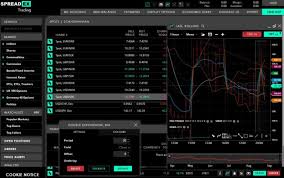CFD trading is a popular financial instrument that offers traders the ability to speculate on price movements in a variety of markets, including stocks, currencies, commodities, and indices. However, not all trading hours are created equal, and traders often ask, “When is the best time to trade CFDs?” In this post, we’ll explore the best times to trade CFDs and how to take advantage of these trading hours to maximize profits.
Timing is critical in CFD trading
Timing is critical when trading CFDs, and knowing the right times to trade can make all the difference. Generally, the best times to trade are when the market is most active and volatile.
During these times, you’re more likely to see significant price movements, which can mean bigger profits or losses. As such, it pays to pay attention to market time zones and the trading hours of the different markets you’re interested in trading.
The best times to trade CFDs
The best times to trade CFDs vary depending on the market or asset you’re trading. For example, if you’re trading currencies, the best time to trade is when the market is most active, which is typically when the London and New York sessions overlap.
During this period, you’re likely to see the biggest price movements in currency pairs, as traders in both markets are active. Similarly, if you’re trading stocks, the best times to trade are during the opening and closing hours of the respective stock exchanges.
However, it’s important to note that not all markets have their peak trading hours at the same time. Some markets, such as the Hong Kong stock exchange, have their peak hours throughout the night and early morning.
Weekdays vs. weekends
Another factor to keep in mind is that weekdays generally see more trading activity than weekends. During the week, trading activity tends to be highest on Mondays and Fridays, while Wednesdays are typically quieter.
Weekends, on the other hand, are the quietest times in the markets, with almost no trading activity taking place. As such, it’s generally not recommended to trade CFDs during the weekends, as liquidity is low, and price movements are less predictable.
Economic reports and announcements
Economic reports and announcements can also impact the best times to trade CFDs. Events such as central bank meetings, GDP announcements, and unemployment reports can cause significant price movements.
As such, it’s worth keeping an economic calendar on hand and paying attention to any significant reports that are due to be released. In some cases, traders may choose to sit out of the market during these events, while in others, they may actively trade around them.
Conclusion:
Knowing the best times to trade cfd trading is essential to maximizing profits and minimizing losses. While the best trading times vary depending on the market or asset you’re trading, generally, the most active and volatile trading hours are the best times to trade. Pay attention to market time zones, economic reports and announcements, and trading hours to get the most out of your CFD trades. Happy trading.
